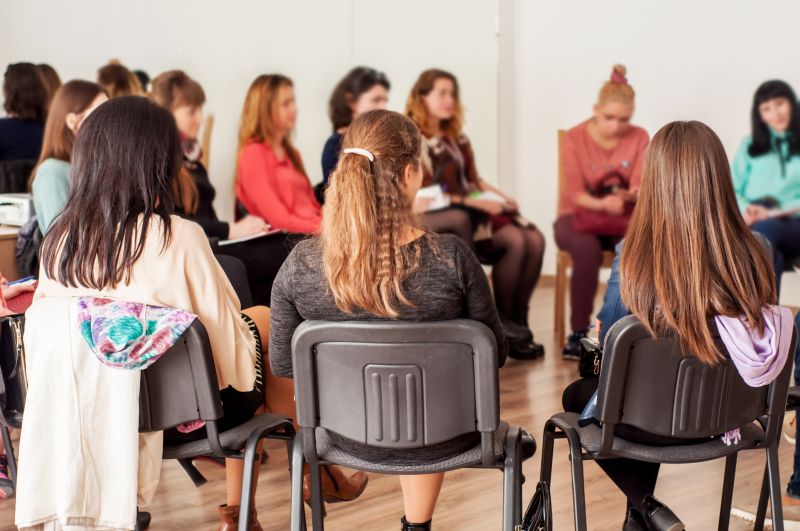Today UKRI (UK Research and Innovation) announced the launch of 'The Mobilising Community Assets to Reduce Health Inequalities Programme’ – groundbreaking initiatives aimed at tackling health disparities and holistic well-being across communities in the UK through promoting access to culture, nature, and community.
This announcement represents the third phase of the programme led by the Arts & Humanities Research Council in collaboration with BBSRC, ESRC, MRC, and NERC, all part of UKRI. It seeks to tackle entrenched and long-standing health inequalities in Britain’s poorest communities by exploring how health systems can collaborate more effectively with communities.
Ulster University Professor Gerard Leavey, School of Psychology and Director of The Bamford Centre for Mental Health and Wellbeing is the lead investigator in the project which has been awarded £1.9 million in funding, CHOICE (Challenging Health Outcomes/Integrating Care Environments) focused on addressing health disparities faced by individuals living with severe mental illness.
Professor Leavey’s project will aim to empower individuals with severe mental illness to overcome barriers and achieve improved physical and mental well-being by establishing a new model of collaboration for different groups to work together at a community level. The new model will aim to provide sustained support to those suffering and give them access to diverse resources such as arts, leisure, and sports.
Professor Gerard Leavey, Ulster University explained the CHOICE project in more detail:
“We are delighted to receive confirmation of this generous funding from UKRI for the CHOICE project, and it is particularly timely as Northern Ireland begins to implement its new Mental Health strategy.
“Previous research has shown that people with a severe mental illness can die up to 20 years younger than the general population, and experience considerable social isolation.
“Over the next three years, the CHOICE project will continue to work in partnership with our previously established community coalition comprising a wide range of statutory and voluntary sector agencies, and experts by experience.
"Together we will examine a model of social prescribing and sustain a community partnership to co-produce innovative arts-based approaches to tackling social exclusion and reducing the health inequalities experienced by people living with mental health problems. Our vision is that people living with mental illness can lead healthy, flourishing lives.”
Ulster University Community Advisory Board includes MindWise, Inspire Wellbeing, Royal College of Psychiatrists, Public Health Agency, Queens University Belfast, Action Mental Health, North West Community Network, Developing Healthy Communities, the MAC, Cause Carers, Praxis Care and Northern Ireland Council for Voluntary Action.
Mobilising Community Assets to reduce Health Inequalities programme
Other projects awarded funding will explore ways of addressing health inequalities in rural and coastal communities, whilst some will be focused on tackling systems change to support specific communities including Roma communities; refugees and migrant communities; people experiencing homelessness; deaf British Sign Language-using communities; and children and young people experiencing mental health challenges.
AHRC Health Inequalities Programme Director Helen Chatterjee said:
“The evidence is clear – intellectual stimulation, a sense of purpose, engagement in your community, and a fulfilling social life are as important as diet, exercise, and medical care when it comes to living a long and healthy life. Yet often public health interventions neglect this reality.
“These projects seek to improve the length and quality of our lives by making use of the rich cultural, artistic, nature and social resources that already exist within our communities. In this way, we can shape a healthier, happier Britain.”
Director of Community Health and Personalised Care at NHS England James Sanderson said:
“We know that joining up care leads to better outcomes for people. When local partners – the NHS, councils, the voluntary sector, and others work together, they can create better services based on local need and what matters to people. Harnessing community assets, finding the opportunities for connection, activity, and purpose can support people to achieve good health and wellbeing outcomes.”
Funding
Additional funding has been provided by UKRI’s Building a Secure and Resilient World, and Creating Opportunities, Improving Outcomes strategic themes.
The programme is also run in partnership with the National Centre for Creative Health.
For more information, visit the CHOICE project website
For more information on UKRI's 'The Mobilising Community Assets to Reduce Health Inequalities Programme’ visit Projects to help communities reduce health inequalities – UKRI


















